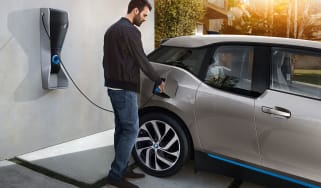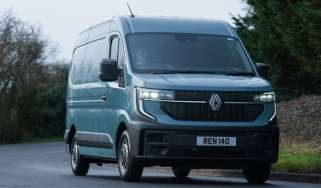Wireless charging for electric cars explained
What is wireless charging and how does wireless charging for electric and hybrid cars work? Find out here...
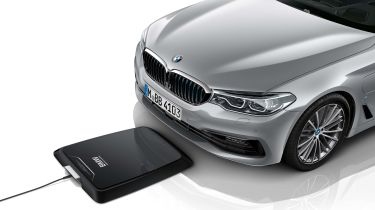
Wireless charging has become common on high-end smartphones in the past few years, and several companies have also looked at scaling up the technology for use with electric and plug-in hybrid cars. Here, we explain the principles behind the technology, as well as its benefits and drawbacks. We also look at some of the companies working to develop it for mass-market use.
How does wireless charging work?
Wireless charging is made possible by the principle of 'magnetic resonant coupling'. This allows for the transmission of electricity without wires or cables by creating a magnetic field between two electrical circuits: the transmitter and receiver.
Although wireless electricity transmission can in theory work over long distances (as proposed by the 19th-century scientist Nikola Tesla), most current systems work over a few feet at most. The most commonly seen application is a charging pad – a flat surface onto which a device such as a smartphone or electric toothbrush can be placed to draw charge.
Benefits of wireless charging
The main benefit of wireless charging is it eliminates the need to plug and unplug an often relatively heavy charging cable in order to top up your car's battery. A cable doesn't need to be unfurled or stored, either in or on the charging point, or anywhere in your car. Wireless charging pads offer similar efficiency to cable-based systems, too.
Wireless charging also allows drivers to charge up their car without having to step outside, which is a real boon in cold or wet weather, especially if you don't have a garage or are at a public charging point with no cover. In short, wireless charging technology makes charging an electric or plug-in hybrid car about as quick and easy as it could possibly be – easier even than refuelling a petrol or diesel vehicle.
Drawbacks of wireless charging
The two major drawbacks of wireless charging are cost and speed: currently, it adds to the cost of any electric vehicle it's fitted to and costs more than a typical home wallbox charger. But as the technology is further developed and manufactured at scale, this cost imbalance will shrink and maybe even disappear altogether.
Wireless charging is also not as fast as the rapid charging that's possible from public wired charging points. The fastest speed possible at the moment is about 20kW, compared to 150kW or more from wired points.
But wireless charging has a different use case to wired charging: rather than being used to top up an almost-empty battery in the middle of a long-distance trip, it's instead intended to be used for slow charging overnight at home, or for a top-up at a location where a car may be stationary for some time, such as a taxi rank or shopping-centre car park.
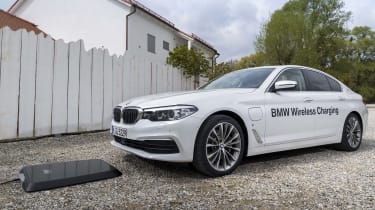
Wireless charging for electric and hybrid cars
Several companies are working on wireless charging technology for electric cars and many trial applications have taken place, although it's not currently something that's widely available for production models.
BMW got as far as offering a wireless charging system for its 530e plug-in hybrid saloon back in 2018, introducing it as part of a lease deal on the car in Germany, the UK, the US, Japan and China. Available to customers as an option, BMW Wireless Charging consisted of an inductive charging station ('GroundPad'), which could be installed either in a garage or outdoors, and a secondary component ('CarPad'), which was fixed to the underside of the car. The system had a charging power of 3.2 kW, enabling the 530e's batteries to be fully charged in around three-and-a-half hours.
In early 2020, the city of Nottingham won a £3.4m government grant to trial wireless charging for electric taxis. Initially, 10 of the city's LEVC range-extender hybrid taxis were outfitted with wireless charging kits and several city-centre taxi ranks were fitted with charging pads. The Nottingham trial was part of a larger £40m UK government investment in wireless charging trials, part of its 'Road to Zero' plan.
US company WiTricity, a spinoff from the Massachusetts Institute of Technology, is one of the leading developers of wireless charging technology for automotive applications. It has designed a "high-efficiency 3.6-11 kW electric-car charging development system" and its technology has already been licensed by Toyota and other car manufacturers.
WiTricity has also bought out the 'Halo' wireless charging solution developed by fellow US company Qualcomm. Previously, this was fitted to the BMW i8 safety car used in the Formula E racing championship as a demonstration. In motorsport, the safety car has to be on standby to immediately respond to incidents on track, so the driver can't afford to waste time unplugging and putting away a cable. Use of Qualcomm's Halo system meant the car could park over the charging pad in the pitlane and remain topped up, ready to deploy at a moment's notice.
In October 2020, the Society of Automotive Engineers (SAE) announced that a common standard had been agreed for the development of wireless charging systems running at speeds of up to 11kW. This should help speed up development of such systems and will ensure interoperability between products developed by different companies, in much the same way as all new electric cars sold in Europe must be compatible with Type 2 wired connections.
Recommended
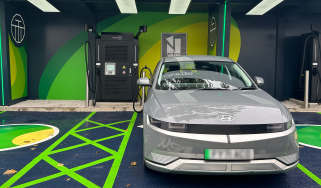
The UK’s fastest electric car charger is live, but it’s too fast for most EVs
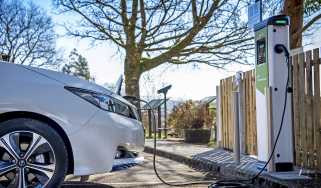
UK EV charging network grows by 47 per cent this year

Gridserve’s new lab aims to boost electric car charging point reliability
Most Popular

EV Deal of the Day: Dacia Spring is amazingly good value at £116 per month
